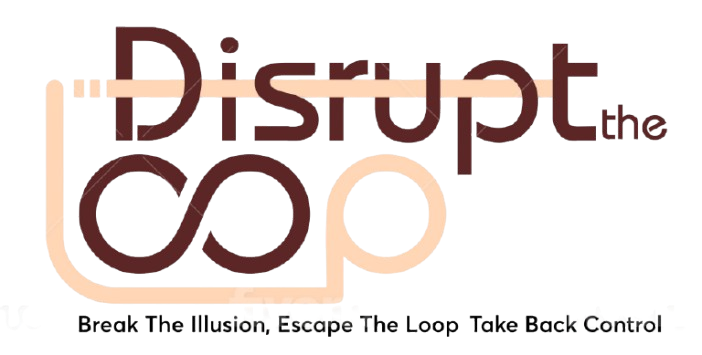The Market-Based Transformation of Human Connection
In today’s hyperconnected world, our most intimate connections have undergone a profound transformation. What was once primarily driven by emotional and social forces has increasingly adopted the language, structures, and incentives of economic markets. This shift raises critical questions about how we value ourselves and others in the pursuit of connection.
At the heart of this transformation lies the commodification of human worth—where identity is no longer inherent but something that must be marketed, optimized, and validated externally. In dating and relationships, this has led to a marketplace mentality where desirability operates under inflationary pressures similar to economic markets.
Dating Apps as High-Frequency Trading Platforms
Modern dating apps function like algorithmic marketplaces, reducing human connection to rapid transactional exchanges—a simple “buy” or “sell” decision manifested through swiping right or left. These platforms distort the dating market through hypergamy-fueled inflation.
The algorithms driving these apps create what I term “circular affirmations of power”—a self-reinforcing dynamic where visibility and desirability become recursively linked. Profiles that fail to generate immediate engagement are deprioritized, creating a situation where, in order to be liked, you need to be shown, and in order to be shown, you need likes.
This results in permanent invisibility for many users, regardless of their actual compatibility or desirability. Much like unsold products in a marketplace that never gain exposure due to poor marketing rather than quality deficiencies, individuals with high relational potential may never enter the “visible market” without algorithmic recognition.
The Depreciation of Personal Capital
Within this relational marketplace, personal value depreciates through multiple intersecting mechanisms:
- Age-based depreciation: The well-documented asymmetry in dating markets where perceived value often declines more rapidly with age.
- Status transitions: Life events such as divorce, having children, or career setbacks functioning as immediate “value write-downs.”
- Health capital: Physical and mental health changes operating as unpredictable depreciation events.
- Aesthetic depreciation: The gradual evolution of physical appearance under cultural standards that prioritize specific attributes.
This multi-faceted depreciation model helps explain why individuals engage in “value maintenance” through cosmetic procedures, status signaling, and strategic self-presentation.
Self-Disclosure as a Deflationary Risk
Perhaps counterintuitively, self-disclosure—often framed as the path to intimacy—functions as a deflationary force in commodified relationships. The concept of “TMI” (too much information) represents a real devaluation risk where anything shared can be used against an individual.
Just as over-revealing corporate financials can devalue a stock, over-sharing personal details can reduce perceived intrigue in relationships. By limiting what is disclosed and when, individuals maintain narrative control, much like companies strategically manage financial disclosures.
This weaponization of disclosure transforms vulnerability into a liability. Many individuals, particularly those who face disproportionate objectification in relationship markets, may employ strategic non-disclosure to maintain perceived value and avoid exploitation.
Counteracting Inflationary Pressures in Dating
If desirability operates under inflationary pressure, what is the equivalent of raising interest rates to tame runaway inflation? The answer lies in creating scarcity and inverting power dynamics.
- Strategic Withdrawal: Overexposure devalues attention. Withdrawing from excessive validation-providing behaviors (likes, comments, excessive engagement) functions like an interest rate hike, reducing “free capital” and forcing a recalibration of perceived value.
- Controlled Volatility: Markets thrive on supply-demand tensions. Unpredictable availability generates perceived exclusivity, increasing desirability without inflationary overexposure.
- Reversing Proof Burdens: Constantly proving worth in dating markets creates subordination. By establishing qualifying barriers instead, individuals regain investment leverage, shifting competitive dynamics in their favor.
The Recognition Paradox
At the core of human existence lies a fundamental tension: Is the need for recognition a biological imperative, or a social construct imposed by civilization?
Evolutionary psychology suggests that early humans who received recognition from their tribe were more likely to be protected, supported, and granted reproductive opportunities. Recognition equaled survival.
Yet recognition also serves as a mechanism for control, dictating hierarchy and power. If recognition were purely a social construct, its manifestations—titles, awards, social media likes, and professional accolades—would hold no intrinsic value outside civilization.
Thus, recognition functions both as a necessity and a trap. We need it to exist socially, but once we desire it too much, we become enslaved by it.
Navigating the Economy of Desire
Our modern relational structures operate like financial markets, where:
- Dating platforms function as algorithmic trading floors.
- Depreciation mechanisms continuously reshape perceived value.
- Self-disclosure acts as a deflationary risk to attraction stability.
- Recognition serves as both a biological necessity and a social trap.
To navigate this landscape effectively, individuals must:
- Recognize the economic distortions shaping attraction.
- Master scarcity dynamics to counteract inflationary desirability traps.
- Utilize controlled emotional volatility to maintain perceived high value.
- Limit excessive self-disclosure to prevent rapid value depreciation.
Conclusion: Choice or Entrenchment?
Ultimately, relationships are no longer purely organic social connections—they increasingly function as markets, trading floors, and speculative exchanges where success depends on strategic navigation rather than idealistic authenticity.
The most pressing question remains: Are we participants in this market by choice, or is the system so entrenched that opting out is no longer an option?
As we continue to navigate the increasingly commodified landscape of human connection, we must maintain awareness of these market forces while striving to preserve the authentic emotional core that gives relationships their true value.
Joshua Garfunkel is a researcher and theorist specializing in the intersection of economic systems and human relationships. His work examines how market logic has transformed intimate connections in the digital age.

